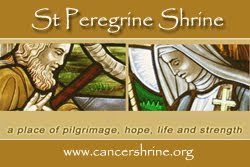by Frances Hogan
When we witness a public example of forgiveness in the face of an evil deed we are deeply touched by such nobility of heart. Such was the case when a brave father went public in his forgiveness of those who killed his daughter at Enniskillen. So, too, when the Pope visited his would-be murderer in prison to extend to him his personal forgiveness. These acts show us why God asks us to forgive, for even onlookers are ennobled by the deed, to say nothing of the participators, for how can we scream for revenge when the injured party lovingly forgives? Doesn't the sight somehow show us what it is to be truly human, and a child of God? Forgiveness is a case of overcoming evil with good, a demonstration that where sin abounds grace abounds even more (Rom 5:20). Observing such acts of heroism liberates us from the sickening feeling that the world is run by evildoers, and that we are helpless in the face of such malice.
Forgiveness is the divine institution for dealing with injustice. It breaks the cycle of evil, of tit-for-tat revenge which services only to increase the problem. It not only breaks the cycle of evil but also power of evil, neutralizing its effects. It is the equivalent of taking the sword out of the enemies' hands and breaking it, leaving them defenseless. Forgiveness is the liberating defense of the child of God. It is also one of the keys of the kingdom of heaven, and those who use it know the joy of God's presence in their lives, and also of God's protection against all enemies both material and spiritual, for time and eternity.
source: Magnificat, June 2010, pg. 180
Wednesday, June 23, 2010
Subscribe to:
Post Comments (Atom)









No comments:
Post a Comment